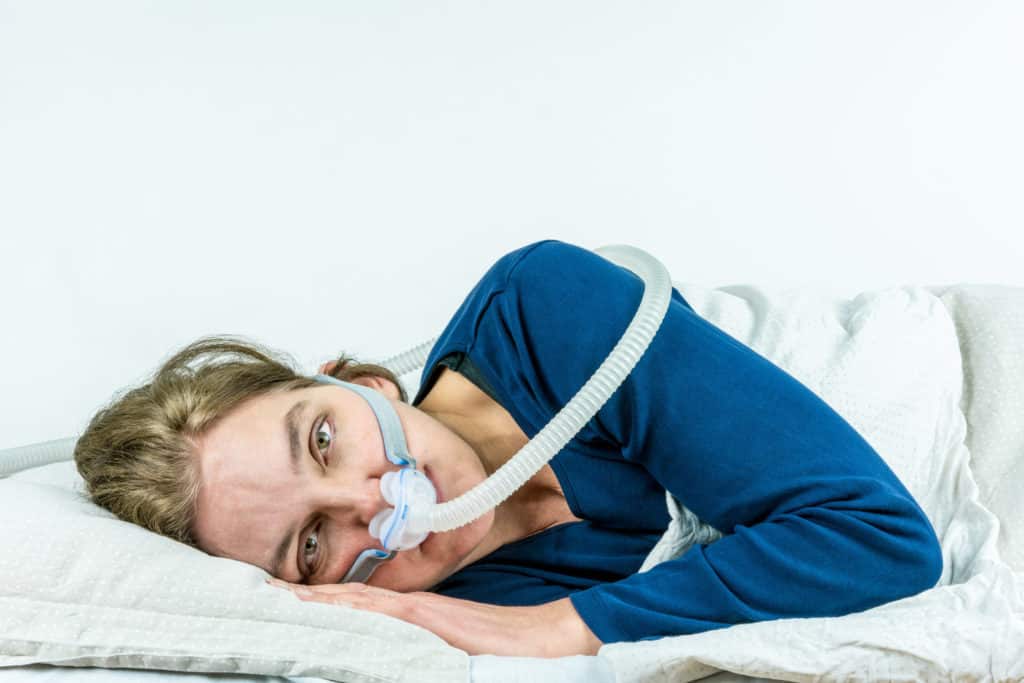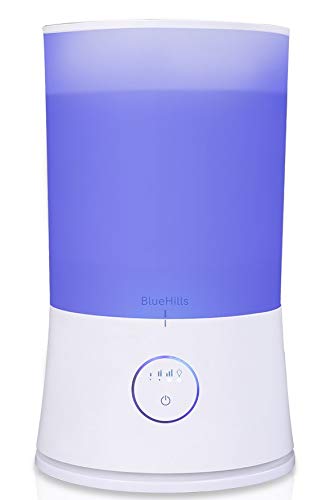Should I Use My CPAP When I’m Sick?
When it comes to good health, for many today, the regular use of a CPAP machine can be a critical piece of the overall health puzzle. Study after study has shown the benefits of CPAP use, from energy and stamina to reductions in cortisol and cardio and pulmonary damage.
When you’re sick, though, is using a CPAP machine still such a good idea? For more on how CPAP machines work and the implications of using them while sick, read ahead.
CPAP Machine Overview
If you’re reading this, chances are that you or someone you know has experienced sleep apnea. With sleep apnea, the sufferer inexplicably stops breathing at various points and for varying durations while they sleep. As a solution to this increasingly common problem, the medical industry has given us CPAP machines.
CPAP machines work by providing continuous air pressure to the airways of the sleep apnea sufferer. This, in turn, causes the sufferer to much more properly maintain open airways and to maintain proper breathing patterns while sleeping.
In some users, CPAP machines have caused a complete reversal of their apnea, and they then no longer need to use a machine and no longer suffer symptoms. In other cases, users do continue to experience symptoms but maintained to a minimum as they continue to use a CPAP machine at sleep time.
Read: What Happens If I Don’t Clean My CPAP?
Without the intervention of a CPAP treatment course, we’ve come to know that irrefutable, bad things occur. As discussed by the WebMD article “7 Ways Sleep Apnea Can Hurt Your Health”, the results of a regular, critical stop in breathing raises cortisol levels and blood pressure, amps up adrenaline and other chemicals, and ultimately damages critical organs and can even lead to the danger of death.
As hard for some as it is to really face, sleep apnea can actually be a killer, so the use of a CPAP machine in those with apnea truly is an imperative health decision.
CPAP Use and Illness
While we can be certain of the benefits of CPAP machine use in those who are otherwise healthy, the lingering question remains: “Should I use my CPAP machine if I’m sick?”. This is a great and very common question throughout the world of sleep apnea sufferers. In general, the answer to this question is a resounding “yes.” You should always use your CPAP machine unless you are experiencing some sort of illness or injury that somehow creates a physical restriction to wearing a CPAP mask and utilizing the system.
When you’re sick, your body is in even more need of restful sleep and a way to stave off all the negative effects of otherwise untreated sleep apnea. By removing the CPAP machine from the equation, you actually help the illness by adding more stress to your body through the experience of ongoing sleep apnea at the same time. This is not what we want.

Cleanliness Is King
Another concern associated with using a CPAP machine while sick is that of machine contamination with the bacteria or virus matter. This is another very reasonable concern. The truth, however, is that this is also no legitimate reason to discontinue use of your CPAP machine while sick.
As discussed in detail by the American Sleep Association, by cleaning your CPAP machine regularly, you are actively removing any accumulated bacteria, viral agents, mold and mildew spores and growth, and all other harmful matter that may come to be inside of the machine.
Read: CPAP Cleaners: A Helpful Buying Guide
This is the case whether you are healthy and introducing all of the typical bacteria and other material into the machine through normal use or whether you are sick and now introducing an additional bacterial or viral agent. So, in the end, no matter if you are sick or well, your machine will operate the same and simply needs to be regularly cleaned.
To that point, there is also some common confusion out there with regard to CPAP machine cleaning process itself. How often should it be done? How should it be done?
If you’re sick, it’s best to clean a bit more often so as to continually rid your breathing machine of that harmful microbe matter, but regular cleaning and sanitizing is important no matter what. No less than two cleans per week is the absolute minimum recommended cleaning regimen with those who are ill being advised to clean even more frequently. With regard to the actual method of cleaning and sanitizing, there are multiple ways to handle this.

Some are able to sustain cleanliness via hand-washing and drying their machines’ parts sufficiently, but this is not the best and most effective and thorough way to entirely sanitize a CPAP machine. The proven best practice for cleaning these machines is through the use of a sanitizing unit. CPAP sanitizers come in various shapes and sizes but essentially are separate machines that hookup directly to your CPAP machine and then clean it in place automatically.
With varying approaches such as through the use of microbe-killing, oxygenated ozone or through ultraviolet exposure, these devices provide as close to 100% sanitization as is possible. This is certainly beyond the average outcome of a hand-wash cleaning method when put to test under the microscope lens. With this all said, professionally-made CPAP sanitizing devices are the very best way to go.
The Humidification Option
The humidification option brings up another great question for many CPAP users today. Should I use the humidification option? This is mostly a matter of personal comfort, however.
Most CPAP users prefer using humidification over not, because this prevents all of the discomfort of dried out nasal passages, a dry mouth and throat, and more. The only downfall to humidification is the increased viability it gives to any mold, mildew, or bacteria that’s trying to stake a claim in the machine.
This, however, is also easily abated, no matter how much humidification you may enjoy, with regular cleaning and sanitizing. So, ultimately, the matter of humidification is totally up to the individual CPAP user’s personal preference.
Additives: Good Idea or No?
Finally, should you use any kinds of additives in your CPAP machine? The use of “additives” here involves the addition of various substances to the water in the machine’s humidification reservoir for ultimately breathing in as a therapeutic aromatic. The answer to this quandary is “no.”
Most CPAP machine manufacturers and other experts advise against adding any sort of additive materials to the CPAP humidification reservoir. This is for a number of reasons including personal safety and machine contamination that can be tough to clean or even cause the machine damage. For those seeking to still incorporate aromatics into their routine, especially to aid in the ails of sickness, there are plenty of great options that aren’t nullified by wearing a CPAP mask and using the machine as you should.
Since CPAP machines simply pull in their air from the air in your room, you can easily setup a regular aromatic system in your room or nearby, and the aromas will come through the machine’s intake valve, to your unimpeded benefit, with ease. Some of the more popular aromatic choices for the occasion often include menthol, rosemary, lemongrass, and lavender. The diffuser choice here, again, is yours; The effect is all the same.
Summary
In conclusion, the continued use of a CPAP machine is critical to good health in sleep apnea sufferers, and this fact can ring even more true in times of sickness when the body needs restorative sleep as much as it can get. One of the biggest pitfalls associated with CPAP machines lies in user failure to clean and maintain them properly.
Humidification is also a factor many consider but one that is strictly up to the user as to whether or not they use. Finally, additives are generally not a good idea for CPAP machine use, but CPAP machines do not negate the airborne effects offered by typical in-room aromatic systems.
For those seeking additional guidance on CPAP machine use or sleep apnea, the American Sleep Association and the American Academy of Sleep Medicine are also excellent resources with which to followup further.

